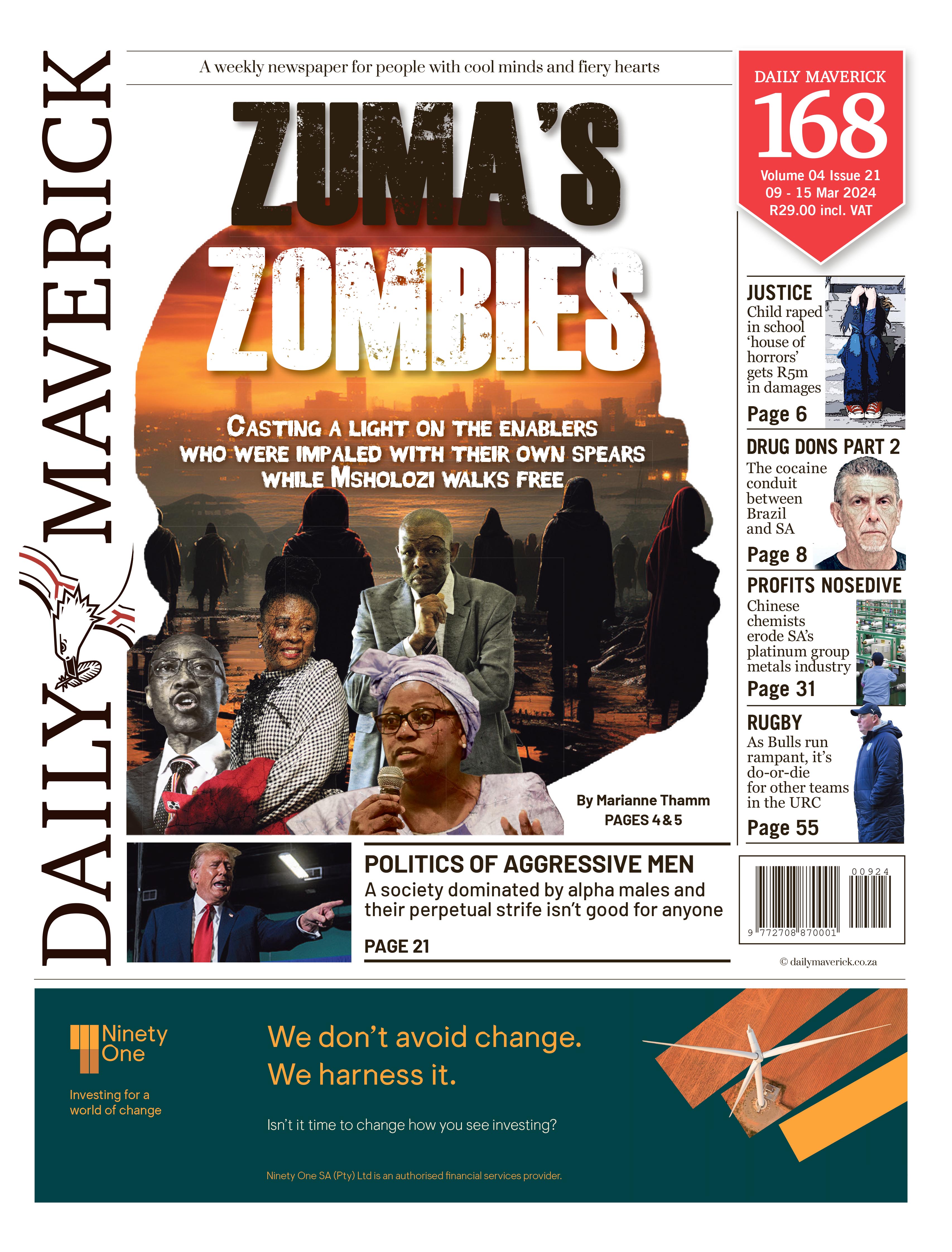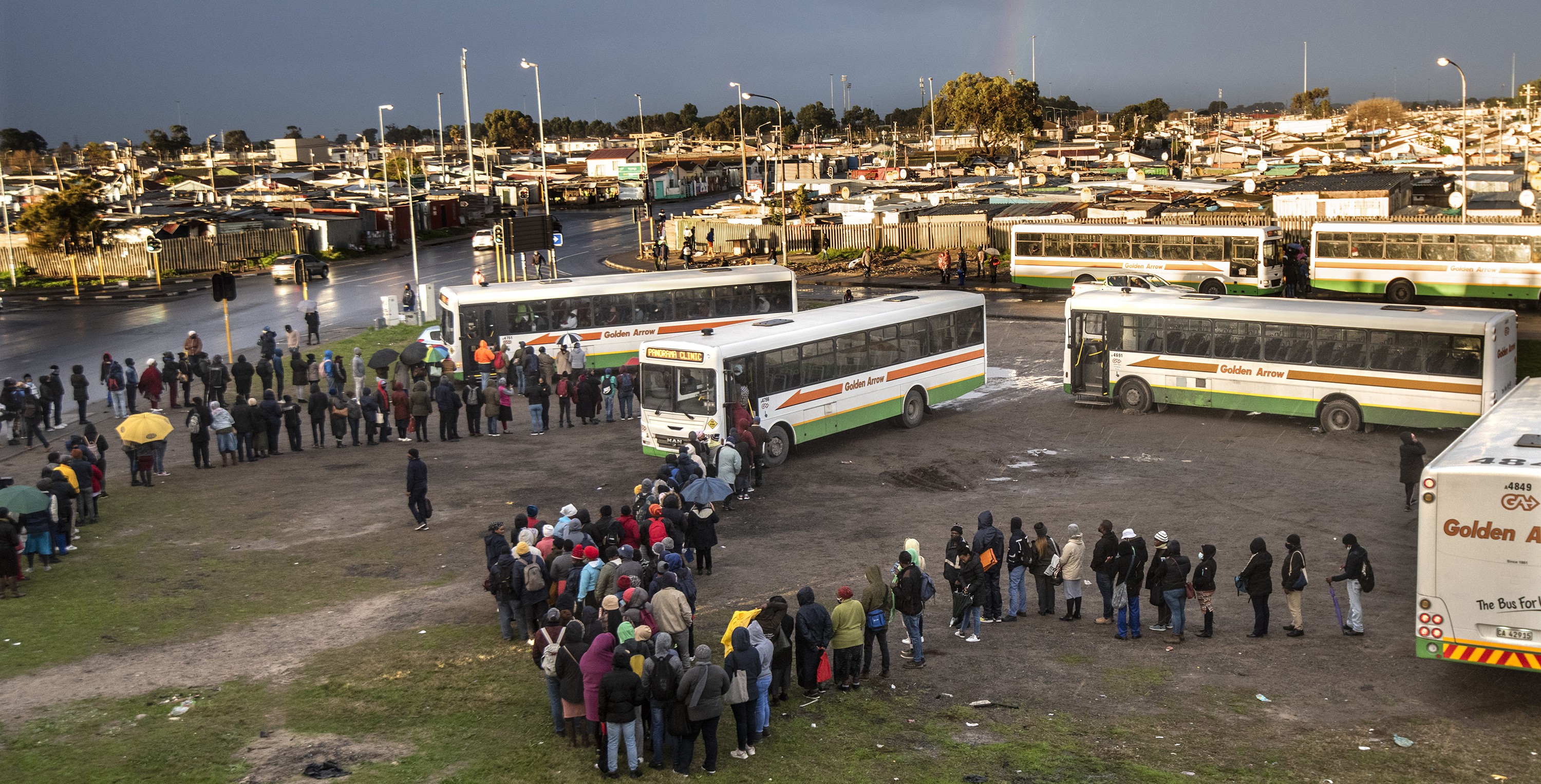“I wrote the book for the bus people,” said author Chumile Sali about his book, aptly titled The Bus People. It documents the lives of commuters who form part of the bus community in Cape Town, specifically the black working class who use Golden Arrow Bus Services.
Speaking at a launch this week at the Institute for Humanities in Africa (Huma) at the University of Cape Town, Sali explained that he wrote the book through his “lens as a bus commuter” throughout the years.
The book is about the interconnected realities of “the bus people” — the bus driver, the domestic workers and the young people who all meet in the Golden Arrow bus that transports them from one part of Cape Town to another.
This is Sali’s first book. He is a human rights activist and a senior programme officer for the International Budget Partnership South Africa.
He is part of the Asivikelane campaign, which monitors the provision of water, toilets and refuse collection in informal settlements in South Africa. Previously, he was part of the Social Justice Coalition.
 'The Bus People', by Chumile Sali. (Photo: Supplied)
'The Bus People', by Chumile Sali. (Photo: Supplied)
Though the book is categorised as fiction, Sali explained at the launch that it was about 95% based on real people, but names were changed or descriptors were given about them.
The book talks about the buses in various ways — from drivers who get shot, the hitmen who kill them in the name of money, domestic workers, scholars, parents who were caught up in the bus violence during Fees Must Fall and, in one case, a man who has a vasectomy and does not want to take the bus home because of his discomfort.
The book is also a commentary on how different people live in Cape Town — from the middle class to the working class. There is a wide-ranging commentary on the dignity of particularly black people who still live in shacks. The book also describes women being killed while trying to find a toilet.
Launch convener and Huma communications coordinator Sandile Ngidi said The Bus People “talks about the daily struggles of the majority of Capetonians who use public transport every day, facing numerous challenges but surviving to make it all come together to support their families”.
Taxi strikes, hitmen and speeding drivers
The 78-page book opens with the tale of a hitman tasked to kill bus drivers for financial reward. Prize money of R10,000 was awarded by a mafia group in the taxi industry that saw Golden Arrow Bus Services as a competitor on its routes.
Whereas the opening chapter is about the hitman, the rest of the book is about the 220,000 people — give or take — across Cape Town who make use of Golden Arrow Bus Services every day. The service is an institution in Cape Town and dates back more than 160 years.
It runs from the deep south to the northern suburbs and between the CBD and Khayelitsha, where most of the book is set.
In one chapter, the book delves into the elderly bus people’s hopes for a new generation. However, these hopes turn into prayers for survival when the new bus driver speeds and drives dangerously early one morning.
The book also takes a look at what happens to commuters and bus drivers when there is a taxi strike in Cape Town — how people have to make choices during these protests: jump and break an arm or stay and die in a burning bus.
This is the reality that the bus people face every day.
Prasa in focus
One of the key messages is the problem of the partially failed public transport system. Although the book mentions transport such as cars and the MyCiti bus service, it largely focuses on the broken rail network.
In Cape Town, train services do not run to major townships, such as Khayelitsha.
Read more in Daily Maverick: Scopa grills City of Cape Town on relocation of Prasa’s Central Line occupiers
One of the passages from The Bus People read out by Sali during the launch was about a domestic worker named Nonzwakazi “Constance” Nojaholo, who used to take the train from Nolungile train station to the CBD.
“That was before the collapse of the railway stations by greedy employees of the Passenger Rail Agency of South Africa in collusion with greedy politicians,” said Sali.
He added: “As South Africans, we underestimate the collapse of institutions and how they affect the poor.”
Sali said the collapse could not be blamed on the people who built shacks on the railway lines in areas such as Langa, Philippi and Khayelitsha, and their subsequent relocation.
The Central Line was stopped in November 2019 after sustained arson, theft and vandalism attempts on the tracks. As Daily Maverick reported in 2021, people living on the tracks in Philippi moved on to the tracks after losing their jobs because of the Covid-19 lockdowns.
Book as a conversation starter
Sali’s publisher, Zimkitha Macengulashe Zilo from Uhlanga Books, told Daily Maverick this week that the stories were “conversation starters for those [who] want to implement change in the townships, and they also serve as a mirror in which a society can reflect and be inspired to be better”.
Uhlanga Books is a self-publishing house founded by Zilo and based in Khayelitsha. She said she was thrilled to publish Sali’s book, as Uhlanga Books’ objective was to “publish authentic township stories that are relatable to the reader, and also stories that depict the unfiltered lives that black disadvantaged ordinary people live on a daily basis”. DM
To purchase a copy of The Bus People, please contact author Chumile Sali at thebuspeopleauthor@gmail.com
This story first appeared in our weekly Daily Maverick 168 newspaper, which is available countrywide for R29.





 'The Bus People', by Chumile Sali. (Photo: Supplied)
'The Bus People', by Chumile Sali. (Photo: Supplied) 